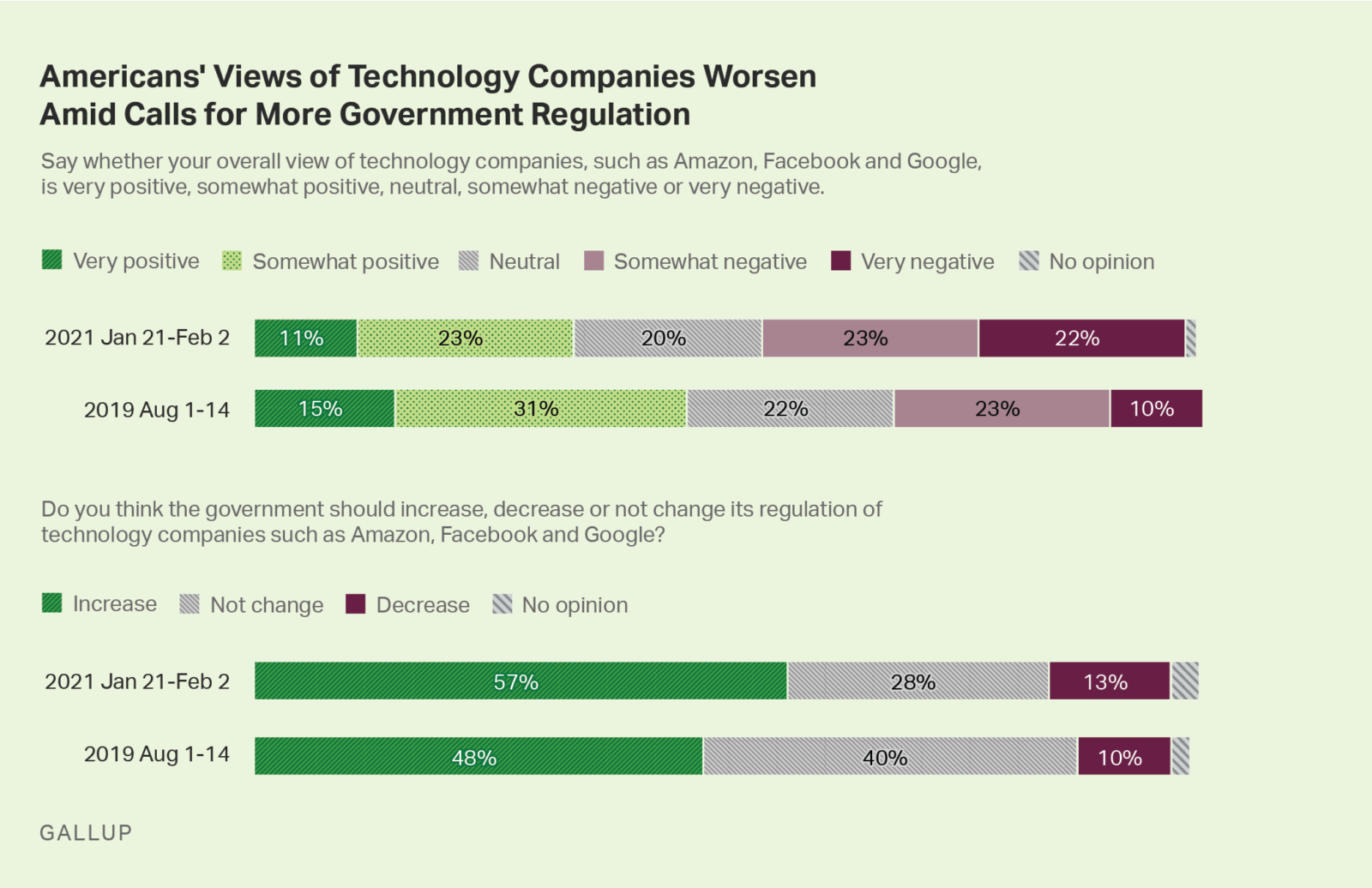The regulation of Big Tech has emerged as one of the most pressing issues of our time, attracting attention from governments and citizens alike. In an age marked by technology dominance, the call for meaningful Big Tech regulation has never been louder, as concerns over privacy invasion and consumer protection continue to escalate. Antitrust actions have become a crucial mechanism in this regulatory landscape, aiming to dismantle monopolistic practices that threaten fair competition. As we navigate through 2025, it is clear that a balanced approach to overseeing big corporations will not only restore trust but also ensure that innovation can flourish without compromising ethical standards. As we prepare for what a regulated Big Tech future might look like, one thing is certain: the need for scrutiny and accountability is long overdue.
The oversight of major technology companies is increasingly vital in today’s society, where the influence of these digital giants impacts nearly every aspect of our daily lives. This phenomenon of Big Tech oversight encompasses various regulatory measures aimed at ensuring fairness and accountability in an industry marked by rapid growth and evolving challenges. As discussions surrounding tech regulation gain traction, terms like corporate governance, digital market regulation, and consumer rights protection are becoming synonymous with the effort to curb the excesses of technology corporations. With the implementation of antitrust policies, governments are stepping in to advocate for a more equitable digital landscape that prioritizes user privacy and competition. The momentum for comprehensive tech oversight reflects a growing awareness among consumers about the implications of unchecked corporate practices and the necessity for robust defense mechanisms against breaches of trust.
The Rise of Big Tech Regulation
The conversations surrounding the regulation of Big Tech have intensified in recent years, revealing a growing consensus that something must be done to rein in these technology giants. With consumers becoming more aware of issues such as privacy invasion and data misuse, calls for more stringent antitrust actions have become prevalent. Governments are now faced with the daunting task of aligning regulation with the rapid speed of technological advancement. As we move deeper into the regulatory landscape, it becomes crucial to consider how these new rules can effectively balance innovation with consumer protection.
Moreover, regulation of Big Tech is not merely a response to public outcry; it is also a proactive measure aimed at shaping the future of technology. By enforcing stricter guidelines, regulators aim to prevent monopolistic practices and ensure fair competition in the market. This means placing restrictions on technology dominance that has often stifled smaller competitors from bringing valuable innovations to consumers. Thus, the evolution of Big Tech regulation is a pivotal moment in shaping our digital lives, and one that warrants close scrutiny as it unfolds.
Consumer Protection in the Digital Age
As our reliance on digital platforms grows, so do the concerns over consumer protection. In a world where privacy invasion has become the norm, it is essential for both consumers and regulators to advocate for stronger protections. The shocking revelations about data breaches and unauthorized data usage have raised alarms, reminding us that the personal information we share is not always safe. The need for transparency in data handling practices has never been more critical, and it’s up to regulators to enforce changes that prioritize consumer rights.
In addition to privacy concerns, consumer protection must extend to ensuring that individuals are not subtly coerced into accepting terms that undermine their security. Many users feel compelled to use free services from Big Tech, accepting the compromises on their privacy as a standard. This creates an environment where users may not fully understand the long-term implications of their choices. Comprehensive regulations must be enacted to educate consumers about their rights and guarantee that they are afforded proper recourse in situations of misuse or neglect.
Understanding Antitrust Actions Against Big Tech
Antitrust actions are often seen as the frontline defense against monopolistic practices in the tech industry. The debate surrounding these actions is multifaceted, advocating for fair competition while ensuring that innovation continues to thrive. Historically, the lack of regulatory action since the major Microsoft antitrust trials has contributed to the unchecked growth of Big Tech, leading to calls for significant reform. As regulatory bodies reevaluate their strategies, the importance of contemporary antitrust actions cannot be overstated in shaping a balanced marketplace.
As we witness the resurgence of antitrust scrutiny, it is crucial to explore how such actions can be forged to challenge the growing technology dominance. Effective antitrust laws should not only target the abuses of power but also encourage a competitive landscape that allows smaller firms to flourish. The imperative question remains: how can regulatory measures safeguard consumer interests without stifling the innovation that has characterized the tech industry? Exploring this balance will be key in the discussions surrounding future antitrust actions.
Privacy Invasion: A Growing Concern
In the digital scenario we find ourselves in today, privacy invasion is a prevalent issue that has caught the attention of lawmakers and citizens alike. Many users are familiar with the hidden costs associated with free services, only to find out later that their data may have been sold or exploited without their consent. This alarming trend highlights the necessity for better oversight and regulation in how tech companies handle and protect consumer data. As we examine the consequences of such invasions, it becomes crucial to educate users on the implications of their digital footprint.
Moreover, as public awareness of privacy violations grows, regulators have started to introduce frameworks that emphasize consent and agency for consumers. This reshape in the discourse around privacy is creating fertile ground for new regulations aimed at protecting individuals from exploitation. With experts advocating for robust privacy laws and ethical data practices, we stand at the precipice of potentially transformative changes in how technology interacts with society.
The Role of Governments in Regulating Technology
The role of governments in overseeing the actions of Big Tech cannot be understated. As technology continues to penetrate every aspect of our lives, the imperative for government intervention grows. The fundamental purpose of governments is to protect their citizens from the overreach of corporations that prioritize profit over ethical considerations. This is particularly true in the technology sector, where the balance between innovation and consumer safety hangs in a delicate equilibrium.
Effective regulation requires a nuanced understanding of the digital landscape, alongside coherent policies tailored to address specific challenges posed by Big Tech. By fostering a collaborative environment between the government and the tech industry, we can cultivate standards that not only promote growth but also ensure accountability. In this light, governments must step up their game to not only legislate but also actively engage in ongoing dialogues about the implications of technology on society.
Technological Dominance and Its Consequences
The grip of technological dominance exerted by major tech players has profound implications for the marketplace and consumer behavior. With a handful of companies dictating the landscape, innovation may stifle under the weight of monopoly power. This dominance creates barriers for new entrants, encouraging an environment where consumer choice is limited. The regulation of Big Tech thus becomes a necessity to foster diversity in the market, allowing smaller companies the opportunity to thrive and innovate.
The consequences of ignoring technological dominance can be profound, influencing everything from pricing models to the availability of services. As consumers face fewer options, their needs may take a backseat to corporate profits. Therefore, as we approach a more regulated landscape, it becomes essential to address the implications of unchecked power and advocate for a fairer technological ecosystem that prioritizes the interests and needs of all users.
Necessity of Informed Citizenship
To navigate the ever-changing waters of digital technology, informed citizenship is paramount. It is no longer enough for consumers to passively accept the services provided by Big Tech; instead, they must actively engage with and understand the implications of their choices. Awareness of privacy issues and the power dynamics involved in data collection is crucial, as is recognizing the need for advocacy in shaping regulatory actions. Informed citizens can serve as a counterbalance to the vast influence of technology companies.
Furthermore, as discussions around Big Tech regulation unfold, it is vital for citizens to voice their opinions and expectations. This engagement fosters a culture of accountability where companies are held responsible for their actions. By equipping themselves with knowledge about their rights and the potential impact of legislation on their daily lives, citizens will enhance their standing as engaged participants in democratic processes, pushing for regulatory practices that prioritize consumer protection and ethical standards.
The Long-Term Impact of Big Tech Regulation
Understanding the long-term impact of Big Tech regulation is critical as we move forward into an era of heightened scrutiny. As legislative bodies implement new laws and guidelines, the industry will undoubtedly face a seismic shift in its operational landscape. While the potential for innovation exists within a regulated framework, there are also concerns that some regulations may hinder entrepreneurial spirit. Regulations must strike a balance between fostering growth and enforcing standards to protect consumers from exploitation.
Looking ahead, the importance of adaptability is paramount. Technology is constantly evolving, and so too must the laws governing it. Continuous assessment of regulatory measures will be necessary to ensure they are effective in addressing the pace of change within the tech industry. Thus, shaping regulations that can evolve timelessly will be essential in maintaining an ethical and consumer-friendly tech ecosystem.
Maintaining Ethical Standards in Tech Practices
Ethical standards in technology are paramount to fostering trust between consumers and companies. As public scrutiny of Big Tech intensifies, the onus is on technology firms to prove that they prioritize ethical practices over profit-driven motives. This necessitates not only compliance with regulations but also a commitment to corporate social responsibility, where technology companies actively engage in practices that benefit society rather than exploit it. By upholding these standards, tech companies can not only mitigate risks but also enhance their reputations among consumers.
Moreover, establishing a culture of ethics within technology firms is essential to counter potential issues related to privacy invasion and consumer deceit. Companies must create frameworks that encourage feedback and transparency, ensuring that users have clear paths to voice their concerns. This shift towards ethical practices could lead to improved consumer relations, bolstering confidence in digital services. The tech industry has a long way to go, but by committing to ethical standards, it can lay the groundwork for a more equitable future.
Frequently Asked Questions
What is the current state of Big Tech regulation in 2025?
As we approach mid-2025, Big Tech regulation is becoming more defined, with governments actively implementing measures to combat technology dominance. The shift is notable as many nations are seeking to protect consumers from issues like privacy invasion and ensure fair competition through antitrust actions.
How do antitrust actions affect Big Tech companies?
Antitrust actions are designed to dismantle monopolistic practices within Big Tech, aiming to promote consumer protection and fair market competition. Regulatory bodies, particularly in the EU and the US, are focusing on breaking up overly dominant companies to foster innovation and prevent and mitigate privacy invasion.
What are the implications of privacy invasion by Big Tech?
Privacy invasion by Big Tech raises significant concerns regarding consumer rights and data protection. Regulators are prioritizing these issues in Big Tech regulation to ensure that users are informed and can control their personal information, thereby reinforcing consumer protection and accountability.
What role does consumer protection play in regulating Big Tech?
Consumer protection is a fundamental aspect of Big Tech regulation, as it addresses the rights of individuals against unfair practices and privacy concerns. Regulation efforts aim to safeguard consumers from exploitation while using services provided by Big Tech companies.
Why is it important to regulate technology dominance in the tech industry?
Regulating technology dominance is crucial to maintaining a competitive market, preventing monopolies, and ensuring that companies do not exploit their power to the detriment of consumers. Effective regulation fosters a healthy tech ecosystem that encourages innovation while prioritizing consumer well-being.
How can consumers be more informed about Big Tech practices?
Consumers can become more informed about Big Tech practices by educating themselves on data privacy rights and the implications of their digital footprint. Engaging with reliable sources of information, staying alert to regulatory changes, and voicing concerns can empower them in the technological landscape.
What lessons can we learn from past antitrust trials against Big Tech companies?
Past antitrust trials, like those against Microsoft, teach us about the complexities of tech regulation and the need for ongoing vigilance against abusive practices. They highlight the importance of adapting regulatory frameworks to confront new challenges posed by evolving technology and industry practices.
How are governments worldwide addressing Big Tech regulation today?
Governments around the globe, especially in the EU and the US, are taking significant steps to implement Big Tech regulation. This includes enacting laws that focus on consumer protection, privacy rights, and curbing technology dominance to ensure a balance between innovation and ethical corporate behavior.
What challenges do policymakers face in regulating Big Tech?
Policymakers face numerous challenges, including the rapid pace of technological advancement, lobbying efforts from Big Tech companies, and the need for a cohesive international regulatory approach. Balancing innovation with consumer protection and ethical standards remains a complex task.
Why is the term ‘enshittification’ relevant in the conversation about Big Tech regulation?
The term ‘enshittification’ reflects the gradual decline in quality and ethics commonly observed in Big Tech services as they seek profit over consumer welfare. It underscores the need for regulation to prevent such degradation and promotes the idea that consumers deserve better treatment and respect from these companies.
| Key Point | Description |
|---|---|
| Sudden Attention to Big Tech | Governments and regulators are increasingly focusing on the actions and influence of Big Tech companies. |
| Regulated Big Tech | As we approach 2025, the implications of regulation on Big Tech are becoming clearer, revealing both potential benefits and challenges. |
| Consumer Expectations | Despite paying for technology services, consumer expectations have diminished, creating a dependency on Big Tech. |
| ‘Enshittification’ | The gradual decline in quality and ethics of tech services represents a slow erosion of consumer satisfaction and rights. |
| Role of Government | Governments have a fundamental duty to protect citizens from corporate excesses, which is essential in the context of Big Tech. |
| Antitrust Actions | Significant regulations and antitrust actions are finally being implemented, led by the EU and now gaining traction in the US. |
Summary
Regulation of Big Tech is a pressing issue as governments recognize the need to rein in the powerful influence of major technology corporations. The evolving landscape of regulation aims to balance innovation and consumer protection, ensuring that enterprises do not exploit their dominant positions at the expense of user rights and market fairness. As regulatory frameworks develop, it is essential for consumers to remain informed and engaged, advocating for their interests as the environment of personal technology continues to transform.



